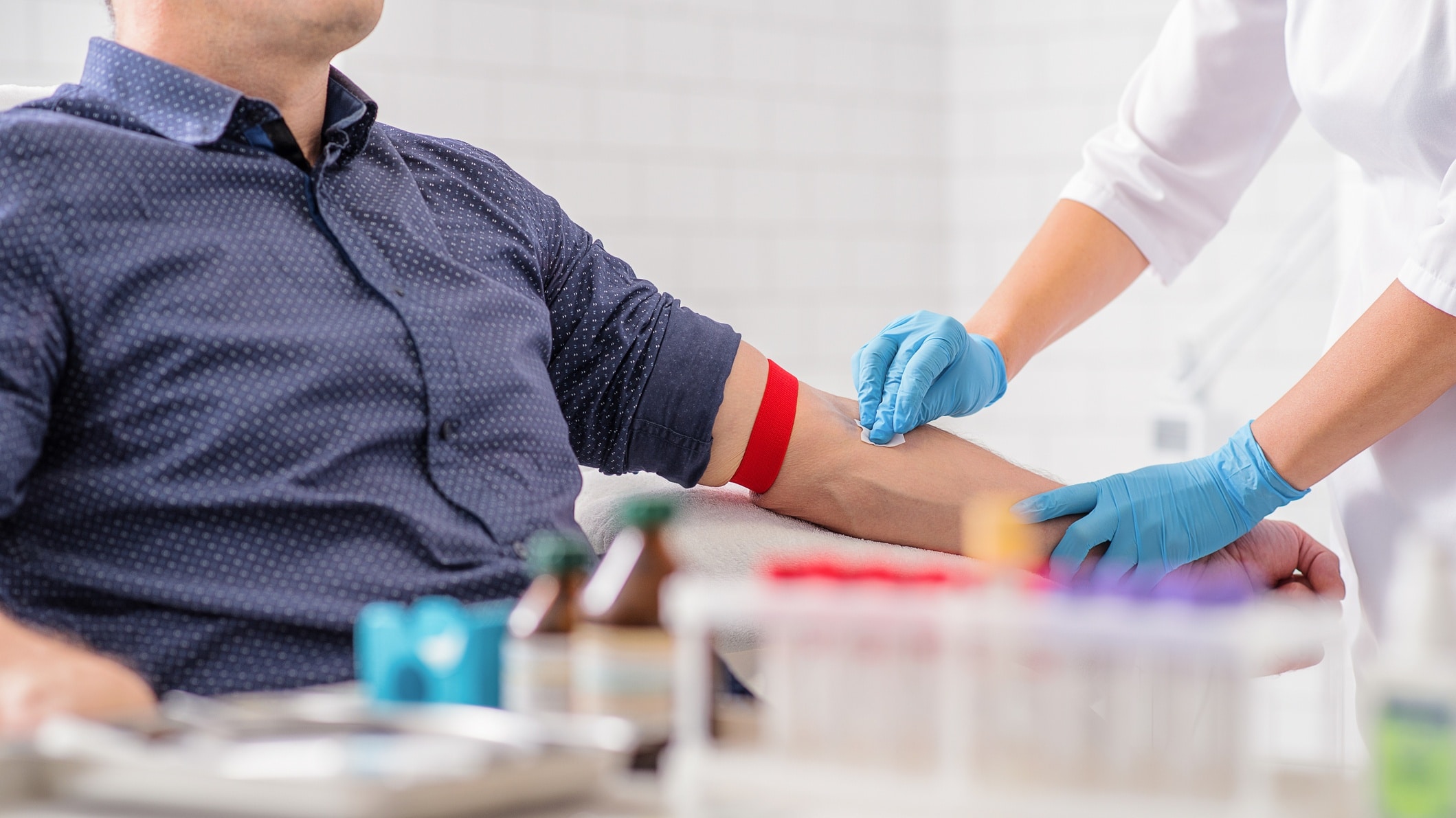Have you ever wanted to give blood but passed up the opportunity because you were a bit nervous?
There are a lot of myths surrounding giving blood, and you might not be 100% certain you’re eligible, or how the process works.
We’ve answered all the questions you might have had about giving blood but been too shy to ask.
How often can I give blood?
The idea of giving blood is such an amazing thing to do, little gestures can make the biggest impact ever
— ਰੇਯਾ ਕੌਰ (@Reyaxo) June 30, 2017
Once you’ve made your first donation, you might be keen to repeat the experience.
Unfortunately, you won’t be able to give blood again straight away. Men can give blood every 12 weeks, women every 16.
Can I give blood if I’ve travelled recently?
It depends on where you’ve travelled to. Enter your destination into the my.blood.co.uk website to learn whether you can give blood or how long you’ll have to wait before doing so.
How long is the needle in for?
The whole process will take 5-10 minutes. You will sit with the needle in your arm until you’ve given 470ml, which is just under a pint.
Where can I give blood?
Contrary to what you might think, doctor surgeries and blood drive vans are not the only places you can do your good deed. The most common venues are community-based venues.
Check the Blood and Transplant website for the location of your closest donation bank.
How much do I have to weigh?
You have to weigh more than 7 stone 12 lbs or 50kg to be able to give blood.
For female donors aged 17-20, there’s a height and weight chart you can find online, to see whether you’re able to donate before you turn 20.
Can I find out which hospital my blood goes to?
A spokesperson for NHS Blood and Transplant says: “Yes, since May 2016, we now provide a text message service to donors who have provided us with a valid mobile number, which tells them when their blood donation has been sent to a hospital and which hospital has received it.”
Why are you allowed only cold drinks after giving blood?
First time donating today ❤️ @GiveBloodNHS pic.twitter.com/dnzHuZxukS
— Dom Szafranski (@DomSza) July 8, 2017
It’s important to keep well-hydrated after giving blood, but just as important is the type of beverage you drink.
The NHS spokesperson confirms: “Hot drinks can cause your body temperature to rise, which makes you sweat to cool yourself down. This adds to the loss of fluid within the body, which can make some donors feel unwell.
“Until we know how blood donation affects you, we advise you stick to cold drinks.”
Can I drink alcohol afterwards?
This isn’t advised because, again, it’s unknown how your body will react to giving blood. In fact, drinking alcohol the same day can cause adverse reactions, such as fainting or dizziness.
Can I exercise afterwards?
It’s best to be cautious before rushing to the gym. Not only would your performance be affected, there’s an increased risk of bleeding from the venepuncture (where they take the blood from) or fainting.
NHS Blood and Transplant advises: “Wait until the following day or ensure you keep any exercise to a moderate level to help to avoid any such problems.”
Can you give blood if you’ve got tattoos?
Like with piercings, you have to wait four months from getting your tattoo before you can give blood.
If you give blood between four months and a year from your piercing or tattoo, you need to let staff know, so they can run additional safety tests.
What’s the deal with gay men giving blood?
On July 23 2017, the government changed the rules barring homosexual men from giving blood. Previously, men who had sex with men couldn’t give blood for 12 months after sexual contact. Now, this period has been reduced to three months. This came into effect in early 2018.
Dr Gail Miflin, medical and research director at NHS Blood and Transplant says: “NHS Blood and Transplant welcomes the government’s decision to amend the rules related to blood donation related to specific activities. These changes will offer more people the chance to give blood.”
The spokesperson for NHS Blood and Transplant says: “The policy isn’t meant to be discriminatory. It’s not based on anyone’s sexual history or sexuality. It reflects statistical risks for the sexual behaviour that increases the risk of virus transmission.”
What is the difference between blood and platelet donations?
Blood contains red cells, plasma, white cells and platelets. When you donate, these components are separated and can be used to help up to three people.
However, platelet donation is different. Donors give platelets via a machine that extracts blood, removes the platelets and then returns the blood. Platelets help blood to clot and one donation can help three adults or 12 children.
In contrast to giving blood, platelet donations take a lot longer – about 60-90 minutes on a machine , though donors can give more regularly; every two weeks.
While the universal blood type is O negative, the universal platelet type – which can help patients of any blood type – is A negative.
Do you really get a biscuit at the end, and if so, what’s the most popular one?
Anyone who’s given blood before will know the best thing about the whole experience is the snack game once the hard bit’s done.
